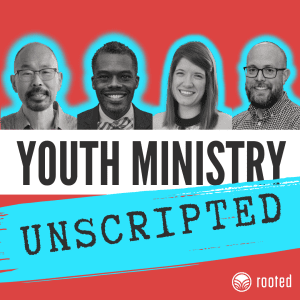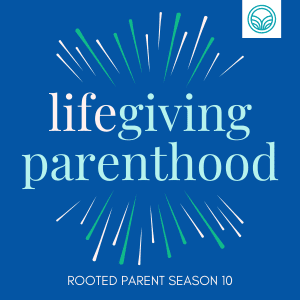It wasn’t until after our third son’s birth that we realized something was different. He was delayed on some of those first-year milestones like crawling, walking, and talking. After a series of tests, we found out he has a rare genetic disorder.
His disorder affects him both physically and mentally. At five years old, he often uses a stroller because of hypotonia, a condition resulting in decreased muscle tone and strength. He’s was diagnosed with autism and is currently non-verbal.
Learning to care for our son and help him flourish has been difficult. We’re constantly on the run to various forms of therapy. Our whole family has adapted to accommodate his needs each day, even as we try to care for our older children, as well.
Thankfully, we haven’t had to walk this path alone. Our local church has worked hard to care for us and our son. There have been learning opportunities along the way, but we’ve never doubted their concern for us. Early on in our journey, when our son underwent an MRI, our pastor led a corporate prayer during our church service about the procedure. It is meaningful and moving knowing that not only our pastor, but our whole church, is supporting us.
Beyond the individual expressions of concern, there are four key ways our congregation has served my son and the whole family well. If you are a family minister looking to support families with disability, I recommend these practices to you and your church.
Make the Church More Accessible
Our church has worked hard to eliminate physical barriers for my son. Construction of the original building occurred in the 1940s with major additions in the following decades. That’s long before the ADA was signed into law.
Nevertheless, our small church has provided space in the back of the sanctuary for him to sit in his adaptive stroller and move around. They’ve placed chairs there to allow us to sit with him. Our church has bought fidget toys for him to use in the children’s classroom, in case he were to become over-stimulated. Our leadership has also begun to include disability care in their teacher training.
Many of these actions line up with the recommendations from Sandra Peoples in her book Accessible Church. She recommends providing sensory tools, dedicating specific rooms as “break rooms,” training volunteers, and providing written resources to families, among many other steps. Our church has begun making changes, and continues to think of other ways to be more helpful to families affected by disability.
Focus on Inclusion
Our children’s leaders have made it a point to welcome our son to our children’s church time and assure us that they would take care of him. We know that it may not be the easiest option to include him, but that is why it means much to us. They invite him to participate and ensure that he has meaningful involvement. They include him in music and activity time, whatever his capacity. He’s also often has a “buddy” to help him during that time.
Our children’s workers have taken initiative in adapting to his needs on their own. The burden wasn’t placed on us as his family to figure out what to do, but instead, the members of our church took initiative to include him.
As he gets older, this may look a little different. He’ll most likely continue to have a “buddy” to help him in ministry activities. But it might also include developing a more robust ISP (Individual Spiritual Plan) for him.
Be Sensitive to Particular Needs
The staff in our church has been proactive in meeting our son’s needs. For example, while updating our nursery, the staff asked us if there were particular items to help our son. I gave suggestions, and they stocked the facility with sensory toys. Knowing his favorite toys are there has allowed our son to feel much more comfortable when he’s in that room. He looks forward to being at church each Sunday.
This has been the pattern at our church. Any time we’ve mentioned a helpful resource or need, the church has worked to provide it. When we’ve talked to our children’s workers about how the braces for his feet go on, or how to utilize his communication device, they’ve been eager to learn how to care for him. This has helped make the church more accessible for the whole community, and not just our son.
Treat Each Person with Dignity
It would be easy for people to ignore our son and only talk to us. Instead, there’s a deacon who always comes over and greets my son by name, asking how he’s doing. Many others in our church have followed suit. Another member of our small group mentioned how meaningful it is to her that our son is involved in the whole life of our church.
It’s been a blessing to see how many within our church have treated him with dignity. He’s not a burden or a lesser part of the church. They treat him like a brother in Christ.
Right now, our son is five. Our experiences are still somewhat limited. With that said, it has meant so much that our church has sought to care for us and our son in concrete ways. Knowing that the members of our church see a fellow image bearer when they look at our son gives us hope. It reminds us that we’re not alone in this journey and that God has gifted us brothers and sisters to walk alongside us. We feel loved, knowing that our church is actively looking for ways to better care for our child and include him in so many ways. And we have faith knowing that God is using all of this, including the work of our church, for his glory.
Are you a youth, family, or children’s minister looking for resources? Check out our Family Ministry Mentorship program, designed to help you disciple children from nursery through youth group alongside their parents.









